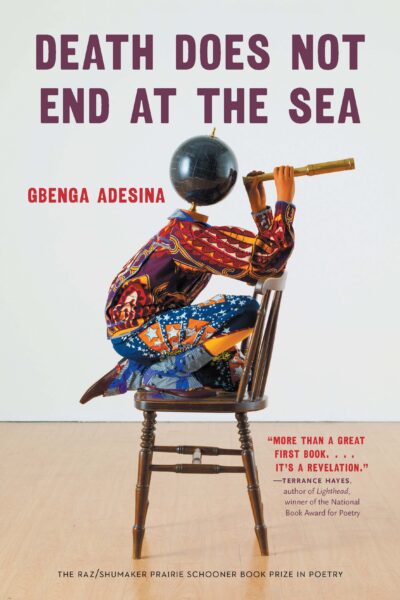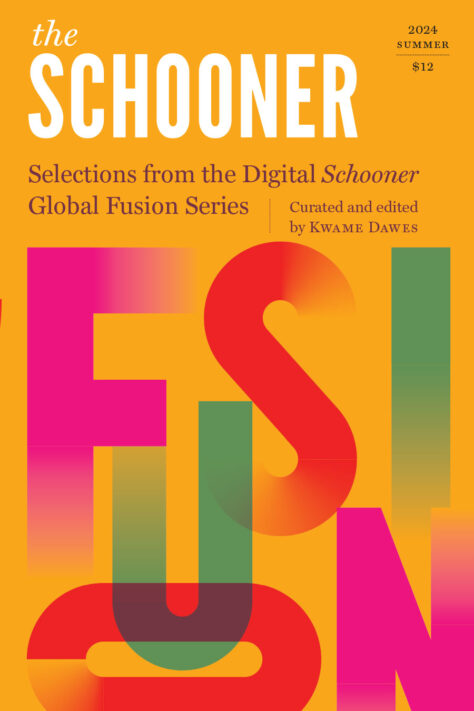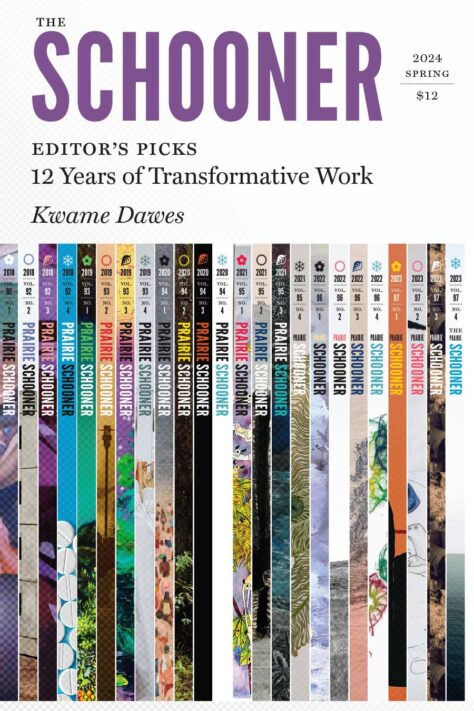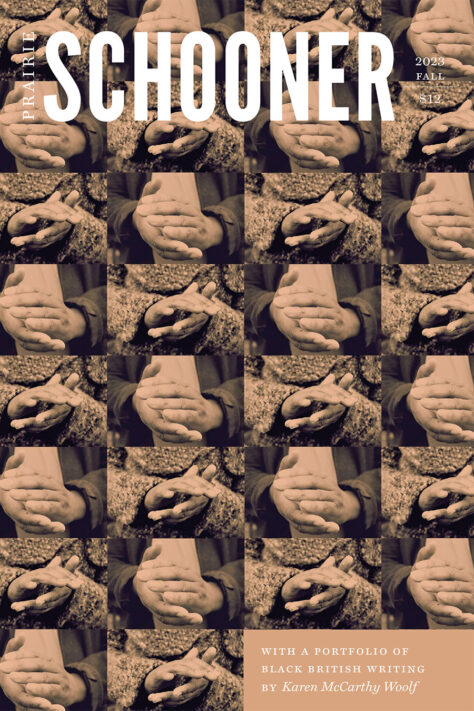Current Issue
Fall 2024 Volume 98 Number 3
This issue includes work by: Brenda Cárdenas, Bruce Parker, Natalie Scenters-Zapico, John Kinsella, Hajjar Baban, iheoma uzomba, Amber Flora Thomas, Kyoko Uchida, Glen Vecchione, Sonja Livingston, Tsahai Makeda, Michael Loyd Gray, Emily M. Green, Lena Khalaf Tuffaha, Kat Finch, Divya Mehrish, Katie Hartsock, Catalina Ocampo Londoño, Nina C. Peláez, Clare Rossini, Amy Nolan, Dana Fang, Page Hill Starzinger, Preeti Vangani, Urvi Kumbhat, James Scruton, ire’ne lara silva, Matthew Daddona, Laura Wetherington, Michael Imossan, Rachel Neve-Midbar, Daniel Millar, Swati Rana, Gabriel Houck, and Marcia Lynx Qualey.
Subscribe Buy NowRecent Issues:
Print Issue Excerpts
Poetry and Prose from our most recent issues

[panther]

These Hands

Wiconi









